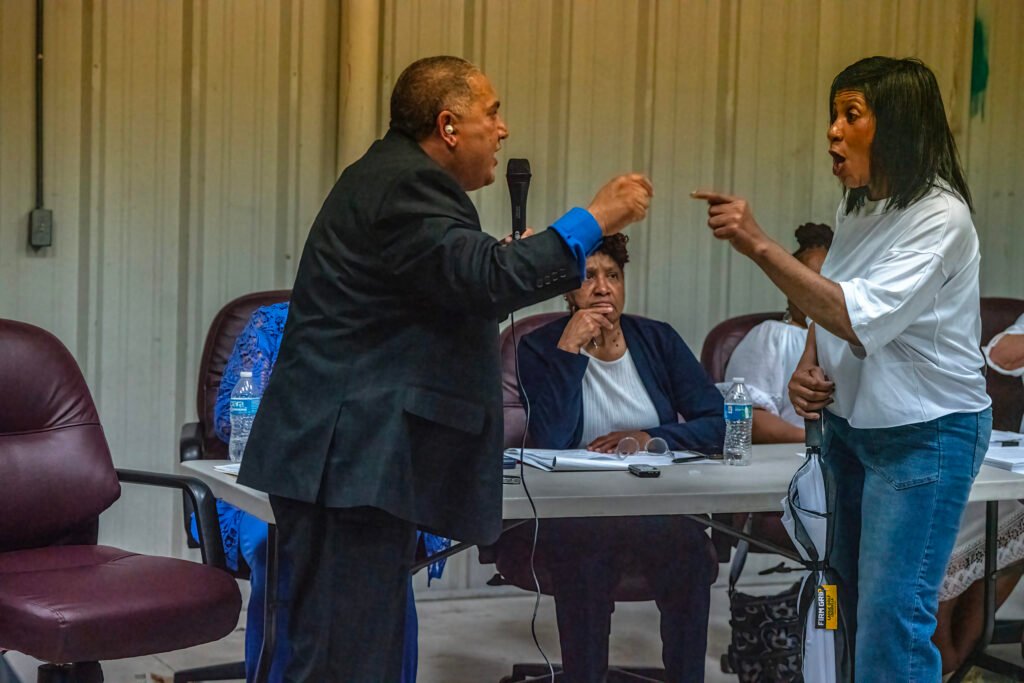Mason, Tennessee Approves Immigration Detention Facility Contract
In a tense Mason Board meeting on Tuesday, officials embraced a contract with Corecivic to transform the former West Tennessee detention facility into an immigration detention center. This decision has stirred strong emotions among residents and local officials alike.
The meeting, called by Mayor Eddie Nayman and the Councilman to evaluate two contracts—one with Corecivic and another with Immigration and Customs Enforcement (ICE)—was marked by heated exchanges. Ultimately, the agreement with Corecivic passed with a vote of 4-1, while the ICE contract edged through with a 3-2 decision.
Interestingly, neither contract was made available to the public prior to this gathering. Town attorney Nathan Bix mentioned that discussions on the Corecivic agreement were ongoing until just a day before the meeting.
Before the meeting commenced, a sizable crowd of approximately 1,500 gathered on the town’s main street to voice their opposition to the facility’s reopening, holding signs and chanting their discontent.
“We need everyone’s support and everyone’s business. We open our arms for everyone. We’re not against anyone.”
– Eddie Nayman, Mayor of Mason
The facility, originally closed in 2021 when the Justice Department, under President Joe Biden, decided not to renew its contract with Corecivic, had become a topic of contention. A contract allowing its reopening was later signed by President Trump.
Mayor Nayman, the town’s first Egyptian immigrant, supported both contracts, emphasizing the potential job and economic benefits for the community. “We need everyone’s support here,” he reiterated, suggesting a welcoming approach to diverse business opportunities.
However, the Mayor of Virginia River voiced dissent, expressing concerns about the impact on local families and the possibility of unjust treatment of immigrants. “I believe we need to consider the pain this will bring to our community,” he stated, highlighting that many detainees are legal citizens.
In a different setting, many residents attended the meeting held in the Mason Fire Station garage to accommodate the crowd. Outside, people stood chanting and drumming, often indicating they couldn’t hear the proceedings inside.
The majority of those who spoke at the meeting opposed the contracts. Supporters argued about the financial incentives, such as property and utility taxes that the facility would generate. Corecivic representatives stated that the facility could bring in significant revenue if fully operational.
“I understand and support the need to deport real criminals, but the majority of those deported and detained are legal citizens.”
– Mayor of Virginia River
Local resident Eloise Thompson worried about the community’s alternatives and emphasized that there are other job-creating options available that might better reflect the town’s character.
Darryle Donell, a veteran and Mason resident, who had previously worked at the prison, expressed strong opposition. “That prison was never good for the town. It felt more like a concentration camp than a correctional facility,” he said.
As tensions mounted, some board members, including Deputy Mayor Reynald Givhan, exited the room during public comments. Givhan later stated he voted for the Corecivic agreement but hesitated on the ICE contract, citing negative connotations associated with ICE.
Corecivic’s representative claimed that 2,100 people had already applied for 240 jobs, which would offer an attractive starting salary. They assured the community of the facility’s operational standards and commitment to humanitarian care, insisting that oversight mechanisms were in place.







